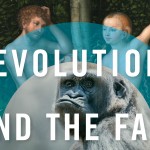
The Weakened Edition is an opportunity for me to see and appreciate what appeals to my readers. This is an especially useful tool when, like in the past three weeks, I haven’t had much time to write. Full-time work and working on translating books has really taken a bit out of my writing time. When I do have time to write I’d like to concentrate upon writing things you might want to read.
Before launching into the TOP10 most read posts of the week I’d like to mention a significant book that came to my attention today. It’s by evolutionary biologist Simon Conway Morris:
How did human beings acquire imaginations that can conjure up untrue possibilities? How did the Universe become self-aware? In The Runes of Evolution, Simon Conway Morris revitalizes the study of evolution from the perspective of convergence, providing us with compelling new evidence to support the mounting scientific view that the history of life is far more predictable than once thought.
A leading evolutionary biologist at the University of Cambridge, Conway Morris came into international prominence for his work on the Cambrian explosion (especially fossils of the Burgess Shale) and evolutionary convergence, which is the process whereby organisms not closely related (not monophyletic), independently evolve similar traits as a result of having to adapt to similar environments or ecological niches.
In The Runes of Evolution, he illustrates how the ubiquity of convergence hints at an underlying framework whereby many outcomes, not least brains and intelligence, are virtually guaranteed on any Earth-like planet. Conway Morris also emphasizes how much of the complexity of advanced biological systems is inherent in microbial forms.
By casting a wider net, The Runes of Evolution explores many neglected evolutionary questions. Some are remarkably general. Why, for example, are convergences such as parasitism, carnivory, and nitrogen fixation in plants concentrated in particular taxonomic hot spots? Why do certain groups have a particular propensity to evolve toward particular states?
Some questions lead to unexpected evolutionary insights: If bees sleep (as they do), do they dream? Why is that insect copulating with an orchid? Why have sponges evolved a system of fiber optics? What do mantis shrimps and submarines have in common? If dinosaurs had not gone extinct what would have happened next? Will a saber-toothed cat ever re-evolve?
Conway Morris observes: “Even amongst the mammals, let alone the entire tree of life, humans represent one minute twig of a vast (and largely fossilized) arborescence. Every living species is a linear descendant of an immense string of now-vanished ancestors, but evolution itself is the very reverse of linear. Rather it is endlessly exploratory, probing the vast spaces of biological hyperspace. Indeed this book is a celebration of how our world is (and was) populated by a riot of forms, a coruscating tapestry of life.”
The Runes of Evolution is the most definitive synthesis of evolutionary convergence to be published to date.
- Why Are Muslims Filling Up France’s Traditionally Empty Churches Today?
- Pope Francis Wasn’t Silent About Auschwitz; He Deconstructed It Instead
- Truman Lied, Hiroshima Fried: An Atomic Transfiguration
- Demons of Liberal Democracy Haunt Poland After the Hell of Communism
- Difference, Disharmony, and Drama Are the Essence of Marriage
- TOP 10 Books on the Ecstatic Pessimism of the Polish Soul
- Just Another Atheist Jewish Catholic: An Interview With Damon Linker
- Benedict’s Unequivocal Endorsement Silences Francis’s Critics
- Girard: Islamic Extremism is Symmetrically Related to Western Wealth
- The Newest News on the Authenticity of the Shroud of Turin
You should also read Obama Used Original Sin to Explain Hiroshima.
Consider making a donation to this blog through the donation button on the upper right side of its homepage. Frankly, our family is just plain short on cash.
Stay in touch! Like Cosmos the in Lost on Facebook:












